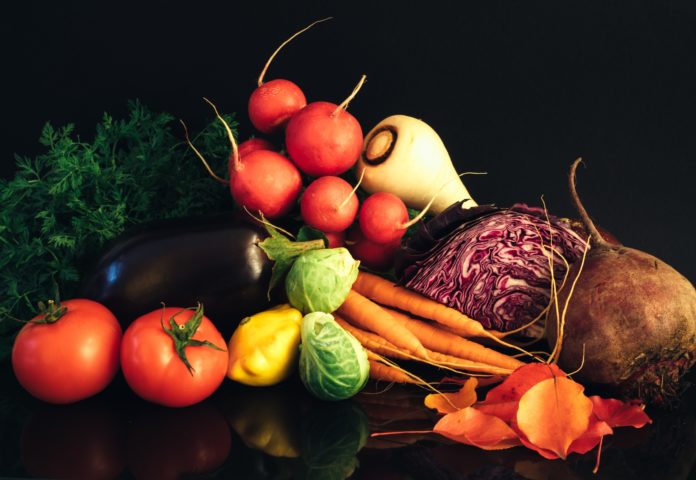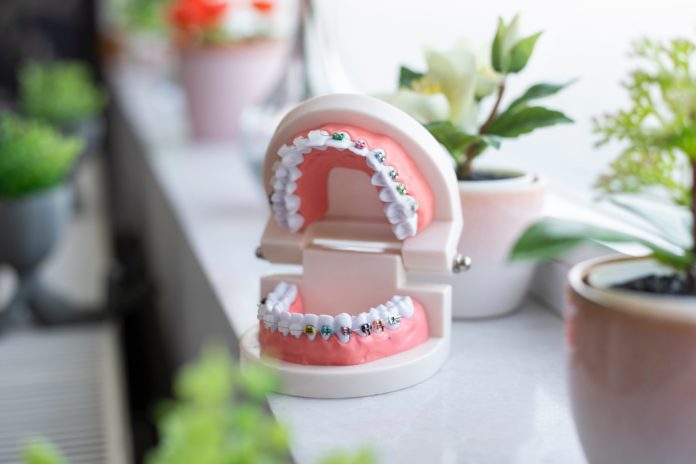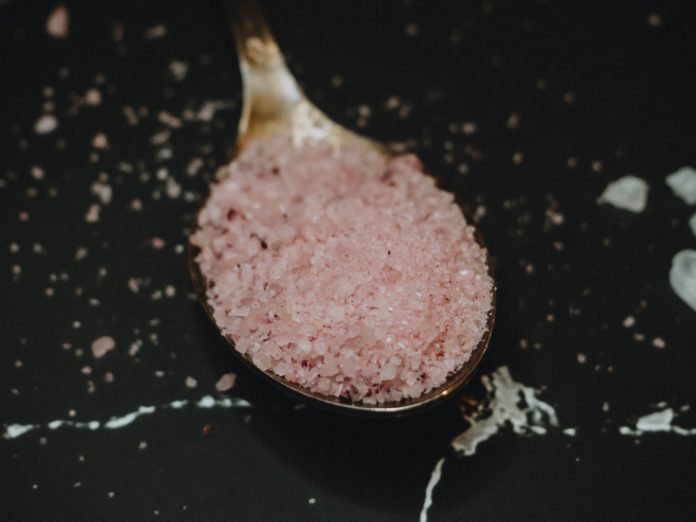Which type of tea is the healthiest tea on Earth?
Because drinking tea comes with so many incredible health benefits, people are often curious to learn which are the healthiest and which ones should be consumed more often than others.
Is there a healthiest tea for weight management or supporting your metabolism? One that may support your heart health? Or help counteract environmental toxins and oxidative stress in your body?
The good news is each type of tea carries its own unique perks for your health and wellness goals. So if you find it hard to choose just one, you can rotate between a few of your favorites to score as many health benefits as possible.
Before we explore the healthiest teas in this guide, let’s break down what a healthy cup of tea should and shouldn’t contain.
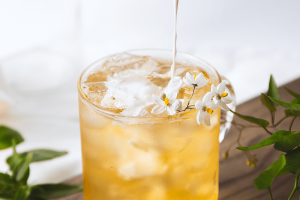
What Makes The Healthiest Tea On Earth?
The healthiest teas are the ones you can drink every day — multiple times per day. Studies frequently show that the more often you drink tea, the more you’ll reap its amazing health benefits.
However, this means you’ll need to be extra careful about where you get your tea bags, loose leaf tea, and tea crystals.
As a rule of thumb, it’s best to look for pure, certified USDA organic teas free of pesticides, toxins, and artificial additives. That’s why all Pique Tea undergoes a triple toxin screen, ensuring nothing harmful slips through to your perfect cup.
Plus, our patented cold extraction process allows for higher levels of natural antioxidants, polyphenols, and phytonutrients to make their way from tea leaf to your warm or iced tea.
Unlike other tea brands on the market, Pique’s unique, cutting-edge process takes up to eight hours and preserves these important compounds so you can take full advantage of their health potential.
Which Type of Tea is the Healthiest?
Keep reading to learn why these eight are considered the healthiest teas to drink:
White Tea
White tea is a true tea, which means it comes from the Camellia Sinensis tea plant, just like black tea, green tea, and oolong tea.
What makes white tea healthy is the way it’s harvested and minimally processed. Tea artisans pluck and dry young tea leaves and skip the steaming and oxidation process green tea and black tea go through.
Thanks to this minimal processing, white tea retains its high catechin content — the highest of any tea, in fact. Catechins are antioxidant powerhouses that can aid your health in several ways, including supporting your body’s fight against free radicals and oxidative damage.
White tea is also bursting with flavonoids, another category of antioxidants. Researchers say flavonoids and their anti-inflammatory properties may support your immune system and cellular health.
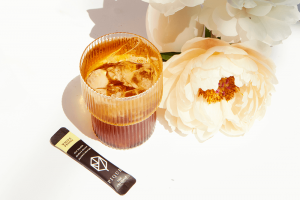
Jasmine Tea
Jasmine flowers, which are used to make jasmine tea, contain linalool. This component is responsible for its dreamy floral aroma.
Studies have shown that the smell of jasmine has the power to help combat stress, making it perfect for tea drinkers looking to chill out and create a calm, relaxing experience (1).
Jasmine tea is often made from a combination of jasmine flowers atop a base of green tea, white tea, black, oolong, or pu-erh tea. So you get to soak up all the health benefits each of these types of tea offers too.
Green Tea
Green tea is minimally processed and almost entirely unoxidized, which helps it retain its powerful antioxidants.
Like white tea, green tea is also high in catechins and flavonoids. Scientists studying their use for the prevention of Alzheimer’s and dementia learned catechins may be able to support healthy brain function and memory (2)(3).
Green tea is also famous for its epigallocatechin gallates (EGCG).
Researchers say EGCG can assist in healthy weight management by enhancing the number of calories burned. It can also increase feelings of satiety and support healthy blood sugar levels to combat pesky hunger pangs (4)(5).
Plus, studies show green tea can be beneficial for heart health. The dietary antioxidants might help support healthy cholesterol levels, especially harmful LDL cholesterol and triglycerides (6)(7)(8).
What’s the healthiest green tea? Matcha green tea is one of the best green teas because you actually consume the ground-up, bright green, phytonutrient and chlorophyll-filled tea leaves.
Black Tea
While white tea and green tea leaves are minimally processed, black tea leaves are oxidized and often aged. Rather than destroying the health benefits during processing, oxidation forms two beneficial compounds that you won’t find in other tea varieties: theaflavins and thearubigins.
These have been studied to support healthy digestion and lessen the chances of bloating or indigestion. Since black tea leaves are oxidized, they go through a fermentation process that naturally creates beneficial bacteria. Each time you drink black tea, you add these healthy bacteria to your gut and help improve your gut microflora (9).
Studies have also shown that drinking 4-5 cups of black tea per day can support healthy blood pressure levels (10)(11). Researchers in one study found that it also has the power to support healthy blood sugar levels by delaying the digestion of starches and sugars, which means you’re less prone to blood sugar spikes after eating (12).
Bonus: Since black tea comes in so many varieties — from Chai to Earl Grey — you have tons of ways to enjoy it throughout the day and week.
Oolong Tea
Though oolong tea also comes from the Camellia Sinensis plant, it’s in a category of its own due to its processing style.
Oolong tea leaves are picked during specific times during the year and left to wither and dry under the sun once harvested. This makes them semi-oxidized, so they contain both catechins and theaflavins. This perfect blend is like having a cup of both green tea and black tea.
Here’s the real kicker: oolong tea contains double the polyphenols of green tea.
Studies have shown that oolong tea supports heart health by aiding in healthy blood sugar and triglyceride levels. It may also help people maintain a healthy body weight (13)(14)(15)(16). Researchers noticed these powerful results when participants drank just two cups of oolong tea per day.
Rooibos Tea
Unlike green, black, white, or oolong tea, rooibos tea is not a true tea from the Camellia Sinensis plant. But this caffeine-free herbal tea boasts an incredible mix of polyphenols and antioxidants. It even has up to 50% more of them than green tea!
Another interesting fact about rooibos tea is that it’s very low in tannins, so even children can drink it without any adverse side effects.
Further, rooibos tea is naturally rich in minerals such as magnesium, zinc, iron, potassium, and manganese, which is like taking a vitamin in a delicious drink form.
Rooibos tea has been shown to support a healthy heart, blood sugar levels, digestion, skin and hair, and the battle against free radicals. These may aid in healthy aging, a healthy immune system, and keeping your body’s natural anti-inflammatory response strong (17)(18).
Allergy sufferers may also find relief when drinking rooibos tea, thanks to the antioxidant quercetin. This has been studied for its potential to block the response in immune cells that triggers an allergic reaction (19). While you shouldn’t take rooibos tea in place of your allergy meds, it may help boost relief during allergy season.
Hibiscus Tea
If you’re looking for another caffeine-free herbal tea, which is also known as a tisane, fruity hibiscus tea should be your go-to.
This type of tea comes from steeping hibiscus flowers (scientifically known as Hibiscus sabdariffa) in hot water. You can enjoy it on its own warm, iced, or mixed with other types of tea (like chamomile tea or ginger tea) for a fun, personalized blend.
Studies have shown that hibiscus tea supports healthy blood pressure, cholesterol levels, blood sugar, weight management, and kidney health. Why? Because you’ll find the same catechins and EGCG in hibiscus as you do in green tea (20)(21)(22)(23).
So if you want the health benefits of green tea without the caffeine, hibiscus tea makes an excellent choice.

Peppermint Tea
Peppermint tea is another caffeine-free herbal tea. But don’t just choose any mint tea. Peppermint tea leaves tout 40 times higher levels of menthone and menthyl acetate compounds than spearmint leaves.
Researchers noticed that these compounds may support healthy brain function, such as improved alertness and concentration, along with healthy digestion, especially in people dealing with irritable bowel syndrome (IBS) (24)(25)(26).
Peppermint tea is also chock full of powerful antioxidants that may aid in a healthy metabolism and hormonal balance, making it a top choice when looking for the healthiest teas to drink.
What is the Healthiest Tea to Drink in the Morning?
To answer this question, you need to first answer whether you want/need caffeine in the morning.
If you don’t need an energy boost from caffeine, herbal teas such as rooibos tea, hibiscus tea, and peppermint tea are the healthiest teas to start your day.
But if you’re feeling a bit sluggish or tired, you may benefit from choosing a caffeinated tea like white tea, jasmine tea, oolong, or black tea (ranked from lowest to highest average caffeine levels).
Not sure where you fall? You may want to drink green tea. While the caffeine content in green tea is higher than caffeine-free tea, it’s lower than black tea, making it a solid in-between choice. Plus, organic green tea contains the amino acid l-theanine, which helps counteract the jitteriness of caffeine to create a calm, focused alertness.
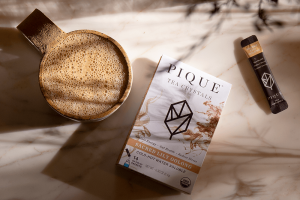
What is the Safest Tea to Drink?
All the teas on today’s list are technically considered safe as long as you choose certified organic, high-quality tea brands. These shouldn’t contain any additives, toxins, chemical pesticides, or artificial ingredients that could make their way into your perfect cup.
Be careful about what you add to your brew as well. Loading up on sweeteners or hormones from dairy milk for your green tea lattes may not do any favors for your health. Try to get your palate accustomed to the subtle fruity, lemongrass, or earthy flavors of your favorite black, herbal, and green tea brands.
Final Thoughts on Choosing the Healthiest Tea
The healthiest teas are not only good for your mind, body, and soul, but must actually taste yummy. After all, studies show the more often you drink tea, the more you’ll reap its incredible health benefits.
Whether your tea leaves come from China, Japan, or the USA, always make sure you’re choosing pure, organic options from tea brands you trust. Pique tea crystals check those boxes and undergo a unique cold extraction process that ensures the highest antioxidant, polyphenol, and phytonutrient profiles possible.
So now that you know more about the healthiest teas and how to choose them, it’s time to find your favorites and enjoy a cup of tea for your health today!


